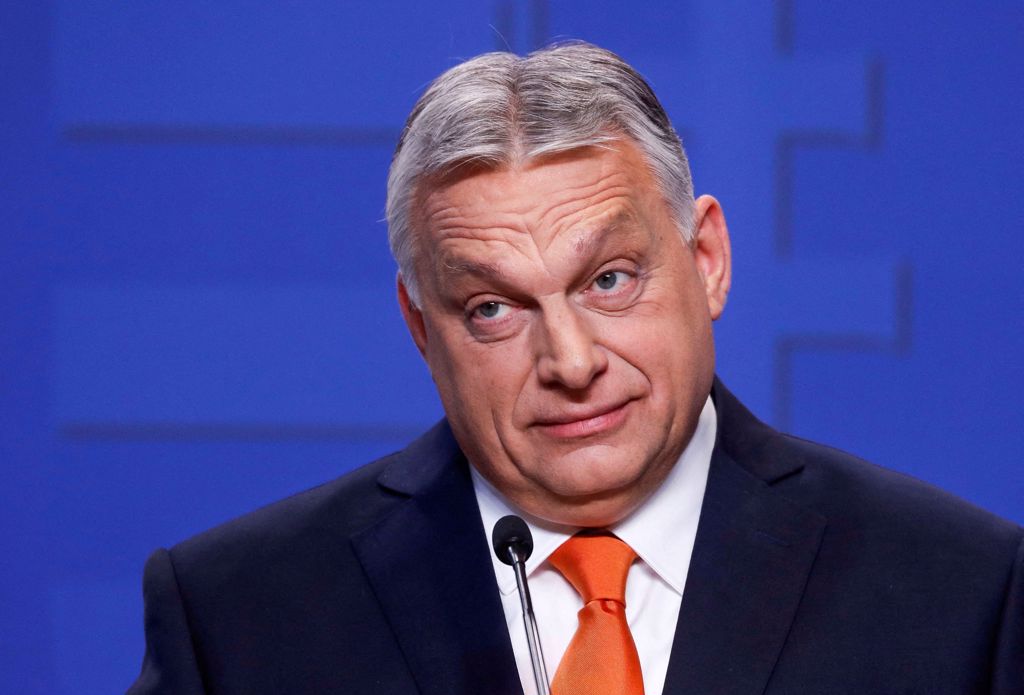据欧盟专业媒体《欧洲动态》(EurActiv)23日报导,总部位设于奥地利维也纳管理顾问谘询公司Pantarhei整理的一份数据将匈牙利列为其「欧盟不稳定指数」(EU Instability Index)的最后一名,表示出政权最稳定,再往回推的话则是塞浦路斯、立陶宛、卢森堡和德国。
这项指数主要基于各国政府中有多少个政党,以及在过去2届国内议会任期期间,发生了多少次政党轮替,而欧尔班在匈牙利的政治主导地位使他的政党青民盟赢得了决定性的多数,在过去4次大选中,优势议会席次巩固了他的政权。
然而,上周欧洲议会批准了一项决议,指出匈牙利已成为「选举专制的混合政权」(hybrid regime of electoral autocracy),不能再被视为完全民主。
而其他会员国,Pantarhei的分析表明,整个欧盟集团的政府都难以维持一个完整的任期。「这导致了一种看似一直在转变的状态,各国每个政党几乎一直处于选战模式。这限制了他们回答重大、紧迫的政治问题的能力,」
这份数据指出了欧盟27个成员国中,有21个国家在最后2届国内议会任期期间的发生政党轮替,其中保加利亚政党轮替了4次、奥地利和义大利政府政党轮替了6以及罗马尼亚的7次。 整个集团的政治动盪程度越来越高,左右翼的民族主义和民粹主义政党的崛起,以及人们对左、右温和政党的支持声量崩溃。
By Benjamin Fox | EURACTIV.com Sep 23, 2022

Hungary, where Viktor Orban’s Fidesz have been in power uninterrupted since 2010, is the most ‘stable’ government in the EU, according to new analysis published on Friday. EPA-EFE/MAX BRUCKER
Hungary, where Viktor Orban’s Fidesz has been in power uninterrupted since 2010, is the most ‘stable’ government in the EU, according to a new analysis published on Friday (23 September).
The data gathered by Pantarhei, a Vienna-based management consultancy, ranks Hungary at the top of its ‘EU instability index’, followed by Cyprus, Lithuania, Luxembourg and Germany.
Spain, Bulgaria and Italy, all of which have seen a combination of weak coalitions and regular changes in government in recent years, are ranked as the most volatile in their ‘EU instability index’.
The index is based primarily on how many parties are in the government and how many administration changes have occurred over the last two parliamentary mandates.
Orban’s political dominance in Hungary has seen his party win decisive majorities, with two-thirds of the parliament in the last four general elections entrenching his illiberal democracy model.
However, last week the European Parliament endorsed a resolution stating that Hungary had become a “hybrid regime of electoral autocracy” and could no longer be considered a full democracy.
Elsewhere, Pantarhei’s analysis suggests that governments across the bloc are having difficulty surviving for a full term. “This has resulted in a seemingly permanent state of flux, with parties almost constantly in election mode. And this limits their ability to give answers to significant and pressing political questions,” it states.
It points out government changes during the last two parliaments in 21 of the EU’s 27 member states, including four governments in Bulgaria, six in Austria and Italy and seven in Romania.
Increasing levels of political volatility across the bloc have seen the rise of nationalist and populist parties on the right and left alongside collapsing support for moderate parties on the right and left.
Italy’s snap elections on Sunday (25 September) are expected to continue this trend, with the far-right Brothers of Italy party led by Giorgia Meloni widely expected to top the polls. However, it is unclear how and whether they would be able to form a government.
“The era of major parties and the resulting clear political conditions in the EU member states appears to be over,” says Pantarhei, adding that “coalitions comprising three or more parties have become the new normal.”
Against this backdrop, the 2024 European elections are likely to pose another stress test for the establishment parties, with far-right and nationalist parties set to make significant gains at the expense of the centre-right EPP, Socialists and Democrats, and Renew Europe.
Pantarhei’s analysis argues that increasingly unstable national governments have impacted EU decision-making, making it easier for proposals to be blocked by member states but harder for the Council of Ministers to reach common positions, leaving the political initiative to the European Commission.
“The nature of governing has been changing significantly across Europe: More fragmented, more volatile. This also impacts the ability to establish pactability for fundamental political decisions in the Council,” Pantarhei managing partner Gilbert Rukschcio told EURACTIV.
The fact that the European Commission and Parliament are bound by fixed, five-year mandates also contributes to their stability and political influence.
[Edited by Alice Taylor]
Facebook https://www.facebook.com/EURACTIV
Europe’s MediaLab (EURACTIV Foundation)
Communication Services





